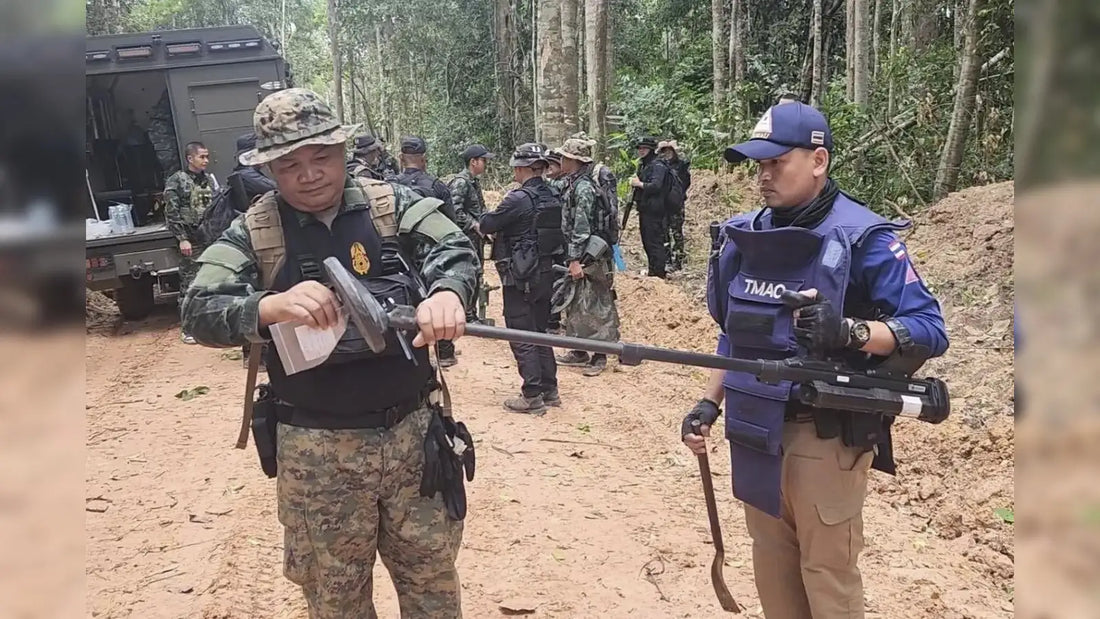Cambodia Calls for Ceasefire Amid Escalating Border Conflict with Thailand

Cambodia has called for an immediate and unconditional ceasefire with Thailand following three days of deadly clashes along their disputed border. The fighting has resulted in at least 32 fatalities and the displacement of nearly 200,000 civilians. The appeal for peace was issued by Chhea Keo, Cambodia's ambassador to the United Nations, who stressed Phnom Penh's commitment to resolving the conflict peacefully.
The violence, which started on July 24, has escalated across several provinces. Thailand has imposed martial law in eight districts near the Cambodian border, with military activities reported in the provinces of Surin, Ubon Ratchathani, and Srisaket. Additionally, Cambodia has reported new attacks near its southern coastal area, where Thai naval forces repelled an attempted incursion.
Maris Sangiampongsa, Thailand's foreign minister, responded to Cambodia's ceasefire request by stating that negotiations would only proceed if Phnom Penh showed "genuine sincerity" in stopping the hostilities. He noted that the conflict has expanded to 12 different locations and involves heavy weaponry.
Thai authorities have reported 19 deaths within their territory, comprising 13 civilians and six soldiers, with over 140,000 people evacuated from conflict areas. Meanwhile, Cambodia’s defense ministry has confirmed 13 deaths, including eight civilians, and reported that more than 35,000 people have been displaced.
Thailand has accused Cambodian forces of targeting civilian areas with rocket fire, leading to evacuations of all villages within striking distance. In response, Cambodia has accused Thailand of deploying banned cluster munitions, although Bangkok has not officially addressed this allegation.
The conflict stems from a prolonged border dispute, rooted in colonial-era demarcations by France over a century ago. Tensions flared in May when a Cambodian soldier was killed in a cross-border incident, exacerbating already fragile bilateral relations.
While global powers, including the United States, have called for an immediate halt to hostilities and the protection of civilians, Thailand has dismissed international mediation efforts. Malaysian Prime Minister Anwar Ibrahim, currently chairing ASEAN, has offered to facilitate dialogue, but Bangkok maintains that the issue can be resolved bilaterally.
The latest clashes were triggered by Thailand's accusation that Cambodia used surveillance drones to spy on its troop movements. Cambodia countered by claiming Thai soldiers violated a standing agreement by advancing on a Khmer-Hindu temple near the border.
As the death toll mounts and concerns of a full-scale war increase, pressure is intensifying on both governments to de-escalate tensions and engage in dialogue to prevent the crisis from worsening.



















